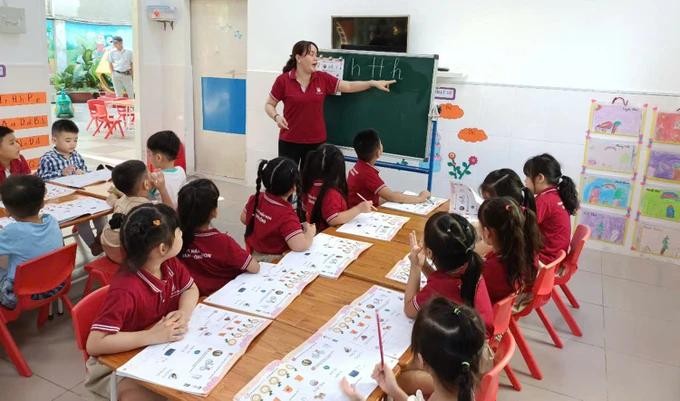
The proposed Law on Teachers stipulates that the salaries and compensation policies for educators employed in non-public educational institutions shall be ensured to be at least equal to those of their counterparts in public educational institutions who possess the same qualifications and titles, unless an alternative agreement is reached.
Vice Principal Pham Thi Le Nhan of Vietnam-Australia Secondary School stated that the aforementioned regulation is designed to safeguard the rights of educators employed in non-public educational institutions. Nevertheless, while all professions and sectors are influenced by the principles of the market economy, it is common for employers and employees to negotiate job expectations and salary structures prior to the formalization of employment contracts.
Consequently, imposing further regulations on salary structures is unnecessary, as it would exert undue pressure on employers. Rather, the salary framework should be guided by an "open" approach, contingent upon mutual agreements between the parties concerned. Ms. Le Nhan asserts that educators in the public sector should not be classified as civil servants, while those in the private sector are labeled as employees; instead, a unified term of teachers should be employed to guarantee equal rights across both systems.
Meanwhile, Deputy Head Tran Thi Ngoc Diem of the Human Resources Department of Nguyen Tat Thanh University proposed that the salary policy and salary-based policies for teachers working at non-public institutions should be assigned to the institutions themselves, ensuring that they are not lower than the regional minimum wage as prescribed by the current Labor Law.
Vice Principal Nguyen Quoc Cuong of Hong Ha Secondary and High School in Go Vap District emphasized the need for more regulations on training and support policies for teachers at non-public schools to ensure equal rights with public teachers, rather than relying on investors, as interest varies among schools.
The current draft Law on Teachers contains limited provisions regarding foreign educators, as noted by him. Additionally, the existing recruitment framework and policies for foreign teachers are rather complex and require more precise regulations to establish a legal foundation for schools to effectively recruit and manage these educators.
Principal Phan Van Thanh of Truong Vinh Ky Primary, Secondary and High School (District 11, Ho Chi Minh City) analyzed that the rights and obligations of teachers at non-public institutions are implemented according to the provisions of the Labor Code. In many cases, comparison and conversion are still difficult, leading to legal disputes between employees and employers.
He gave an example to illustrate. Employees are typically required to work 8 hours per day, 5 to 6 days a week, amounting to a total of 40 to 48 hours per week. However, as per the regulations governing the working conditions for general teachers, outlined in Circular No. 28/2009/TT-BGDDT issued by the Ministry of Education and Training, the teaching workload is defined as 23 periods per week for primary school teachers, 19 periods per week for secondary school teachers, and 17 periods per week for high school teachers.
The introduction of the Law on Teachers will provide a legal framework to enhance management efficiency in educational institutions, but effective implementation will require the alignment of related sub-law documents.
To finalize the Law on Teachers, experts unanimously agree on the necessity of establishing a monitoring mechanism that distributes the responsibility for implementation among various stakeholders, including investors, managers, and educators.
Concurrently, the education sector will enhance its communication efforts to increase awareness among school owners, investors, managers, and teachers, ensuring that these target groups fully comprehend their rights and responsibilities while diligently adhering to legal regulations.
























